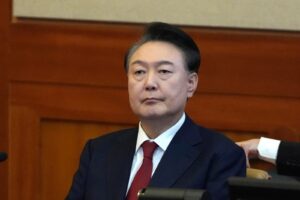
Published 01/10/2023 10:24 | Edited 01/11/2023 6:32 PM
At least 17 people were killed in clashes with police in southern Peru, the country’s human rights office said on Monday (9). This is considered the deadliest day yet of protests demanding early elections and the release of jailed former president Pedro Castillo. The protests have claimed 39 lives since they began in early December, after Castillo was ousted and arrested.
The clashes left 68 people injured, Henry Rebaza, an official from the Ministry of Health in Puno, told the agency. Reutersto the state television channel TV Peru. The Minister of Health, Rosa Gutiérrez, informed in the evening that 28 patients need to be urgently transferred from Puno to Lima to receive adequate medical and surgical care and asked those protesting to allow said evacuation.
Even the ambulances sent were attacked by the demonstrators, according to the minister. She cites the death of a doctor hit by improvised ammunition. The airport was also raided, preventing 28 injured police officers from being treated. Police stations were also attacked.
Among the dead are at least two teenagers, according to the ministry. Some of the bodies had gunshot wounds, Puno regional health director Ismael Cornejo told local radio station RPP. Those killed in the clashes were mostly young people between 21 and 35 years old, according to the records of the Health Directorate of Puno.
According to witnesses told the Reuters, protesters were hiding from gunfire, while shooting with improvised slingshots. Other reports point to victims who were not even at the protests, hit by gunshots.
Peru’s human rights office, known as the Ouvidoria, called on police to meet international standards in the use of force and investigations into deaths, while urging protesters to refrain from attacking property or impeding the movement of ambulances.
call to reflection
Castillo is serving 18 months in pre-trial detention on a rebellion charge, which he denies. By decreeing the dissolution of Congress, he aimed to interrupt yet another impeachment process against him, who has not had governability in the legislature since he took office.
Protests calling for early elections and Castillo’s release resumed last week after a holiday break. Protesters also demand the resignation of new president Dina Boluarte, the closure of Congress and changes to the constitution.
Despite the deadly uneven outcome between police and protesters, the government blames the violence on the protesters, spurring an armed police response. The country’s prime minister, Alberto Otárola, said in a televised message that he will restore order in the region “against a violent group that wants to take power.” Other ministers accompanied Otárola in the statement, with the notable absence of Boluarte, who, faced with questions about his legitimacy in the government, avoids pronouncing.
Speaking at a “national accord” meeting on Monday with representatives from the country’s regions and various political institutions, Boluarte said he could not meet some of the protesters’ main demands. Amid the total lack of control and revolt of the population that voted for Castillo, she asked citizens to “reflect”.
“The only thing that was in my hands was to bring forward the elections, which we have already proposed,” she said. “What you are asking for is a pretext to continue creating chaos in cities.”
The Inter-American Commission on Human Rights reported that it will visit Peru from Wednesday to Friday, visiting Lima and other cities to assess the situation.
Source: vermelho.org.br

